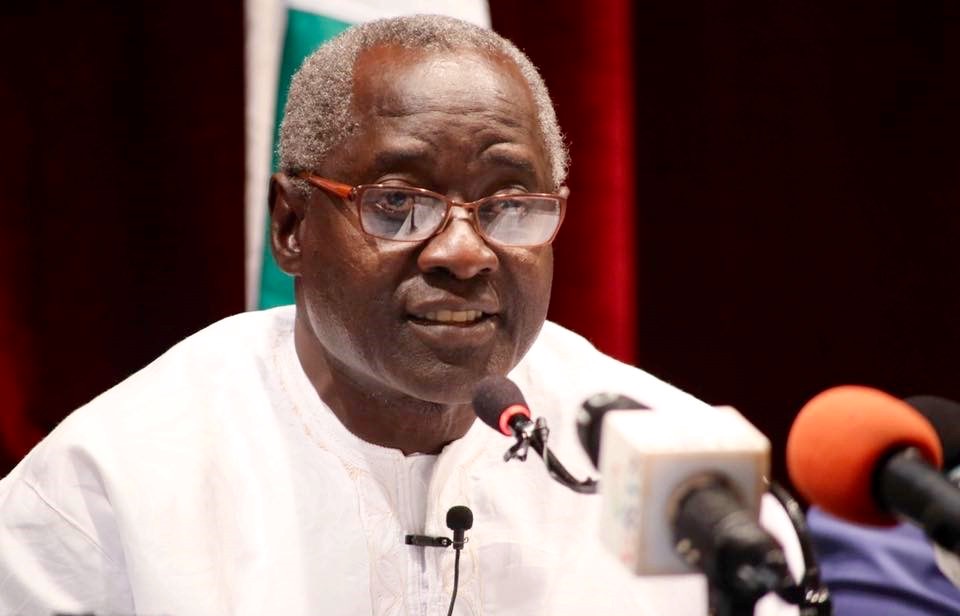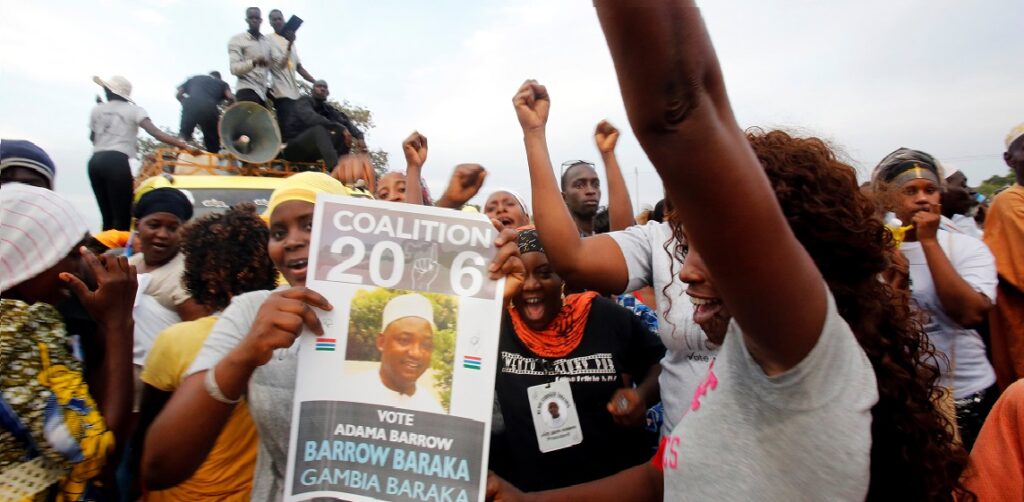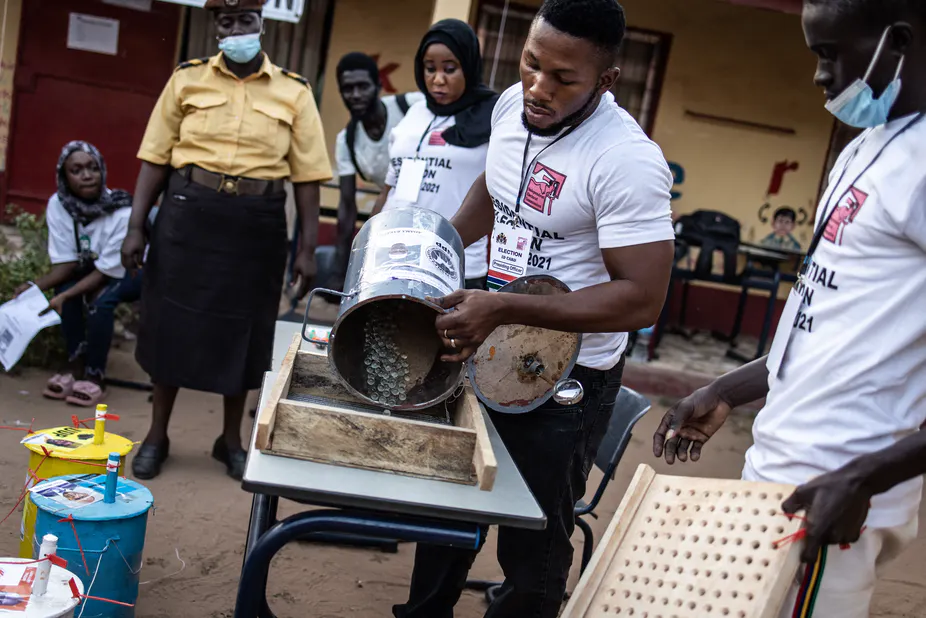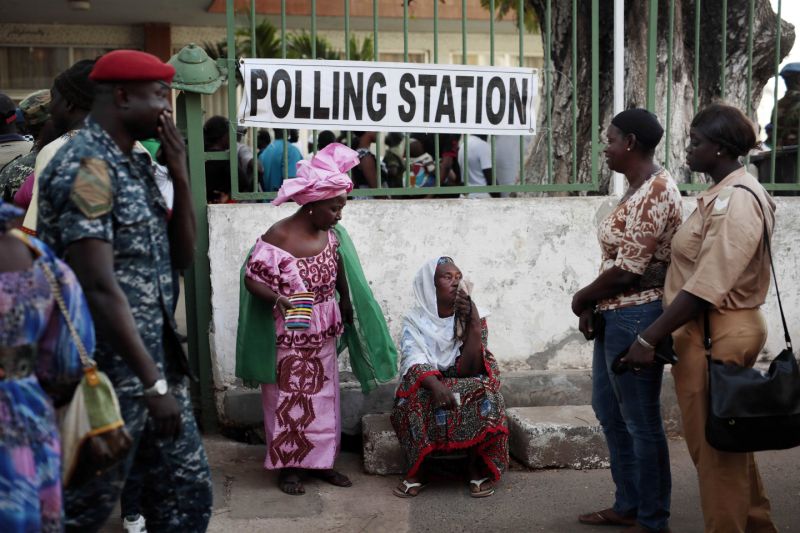
Halifa Sallah’s journey in Gambian politics is one of courage, sacrifice, and unwavering commitment to the greater good. His reflections on the 2016 presidential election and its aftermath reveal a man who has placed the welfare of his country above personal ambition, embodying the true essence of statesmanship.
“I know what I went through in 2016. I faced death but I was not interested in protecting my life but The Gambia as a whole. I was ready to swallow a bullet to save this country, and I believe the Gambian people knew about it,” Sallah said, recounting the perilous moments that defined his role in the historic election that ended 22 years of dictatorship. His words are a stark reminder of the sacrifices made by those who stood on the frontlines of change, risking everything to secure a brighter future for their nation.

Yet, despite his pivotal role in shaping The Gambia’s democratic transition, Sallah’s subsequent bid for the presidency in 2021 garnered only 32,000 votes. For him, this outcome was not a defeat but a revelation—a clear message from the Gambian people that his role was not to seek the highest office but to continue serving in other capacities. “That cleared all the doubts and demonstrated that I should not seek that mandate again,” he acknowledged with characteristic humility.
Sallah’s decision to step back from electoral politics is not a retreat but a call to action for others to rise to the occasion. “Those who want me to contest again should be reasonable enough to support anybody that I put forward,” he emphasized. His words challenge Gambians to look beyond individual personalities and embrace a collective vision for the nation’s future.
This vision was evident in his role as the coordinator of the National Alliance for Democracy and Development (NADD), a coalition he helped launch in 2005 to unite opposition forces against the entrenched APRC regime.
Speaking at the People’s Resource Centre in Serekunda, Sallah expressed optimism about the coalition’s prospects, emphasizing that it would be funded by “lovers of democracy and what it means in a civilized society.” For Sallah, supporting NADD was not a waste of resources but an investment in the liberation of Gambians from what he described as “monarchical rule.”
His words captured the essence of his mission: to empower the people and restore democratic values to the nation.
Affectionately called “The Enigma” by his supporters, Sallah embodies the inexhaustible mystery of greatness and the powerlessness against the strong currents of fate and history.

Like many literary characters, especially Shakespearean ones, he has grappled with the big questions of life: winning and losing, hope and despair. He knows what it means to dine and wine with civil society and opposition politicians, yet he also knows the loneliness of life after major losses.
Sallah’s quest for the presidency has left his life hanging midair, like a half-finished sentence without a full stop. As Ama Ata Aidoo wrote in Our Sister Killjoy, “Besides, when hope dies, what else lives?” Gambians hope that the 2026 presidential election completes the sentence of Sallah’s life, bringing closure to his unfinished journey.
For Odysseus, an ambitious man who had seen a “vast ocean,” nothing else would do but legacy-inspiring greatness. He wondered if his actions would echo across the centuries. Odysseus is aptly typified by Halifa Sallah in his quest to fight fiercely for what he believes in. Four decades ago, as a feasible candidate for PDOIS, Sallah embarked on his journey to the presidency, driven by sprawling dreams and outsize ambition.
Having contested the Gambian presidency many times and lost—sometimes under controversial circumstances, according to his supporters—Sallah remains decent, iconic, defiant, and charismatic, though somehow doomed in his presidential quest so far. He is a man out to smelt, forge, and fabricate himself into greatness, yet his kingdom remains shaky, his conquest uncertain.
As a presidential contender, Sallah has campaigned with a kind of wistful nostalgia that borders on dreaminess, his warm fuzzy overtones resonating with the masses.
He has the bearing of a statesman with an elder’s grace—confident and abrasive both—and gravitas greater than that of most politicians. His poignant, steady, serious, and watchful gaze signifies political style and glamour, the adrenaline of crowds, and the soaring elation of prospective voters who turn to listen to him at rallies.

But after every election in the last several electoral cycles, Sallah has been like a tragic literary character, his post-election press conferences were imbued with sunlight and his voice fading as within a sanctuary where every emotion could be and reconciled.
His supporters recall the of helplessness, the sunlight, and the sight of some wiping their eyes with handkerchiefs—a born of years engaged in democratic struggle and dedicated governance, had strained vision but at times appeared as an expression of profound emotion.
Sallah’s role as a leading character took on an outsized position after the election of Adama Barrow, in the coalition he masterminded to usher in a third republic. All eyes are now on him as the 2026 presidential election approaches, wondering whether he will take a leading role in creating another coalition. His call for Gambians to embrace republican values and prioritize the nation’s welfare underscores his enduring commitment to the greater good.
As a protagonist, Sallah embodies the traits that define literature’s greatest characters. His curiosity drives him to unravel the mysteries of governance, exposing secrets and advocating for good governance and patriotism.
His sense of self-preservation enables him to take calculated risks, pulling his supporters back from the brink when necessary. His empathy allows him to connect with the poorest of the poor, addressing their problems with a tenderness that alternates with menace when confronting injustice.
Sallah’s leadership has been a constant in Gambian politics, serving as a counterweight to three successive presidents.
He has taken decisive action time and again, coordinating opposition coalitions like NADD coalition before and the grand coalition of 2016. His resignation from the coalition he created to elect Adama Barrow exemplifies his ability to prioritize principles over personal gain.
Most Gambians are haunted by the question: Would Halifa Sallah have made a better president? While the answer may remain elusive, what is certain is that Sallah is a stellar protagonist, rivalling some of literature’s best. He may be down now, outnumbered, out-generaled, and outgunned, but he is never outfought. He gives as much as he gets, embodying the resilience and determination that define true leadership.
Halifa Sallah’s story is a reminder that true leadership is not about clinging to power but about empowering others. It is about fostering a culture of collective responsibility, where every citizen plays a role in shaping the nation’s destiny. As The Gambia continues its journey toward a more inclusive and democratic future, Sallah’s words and actions serve as a guiding light, inspiring a new generation of leaders to rise above self-interest and work for the common good.
Mr. Sallah stands out in Gambian politics as a significant figure, reminiscent of protagonists in literature. A member of PDOIS and the architect behind the grand coalitions NADD in 2005 and the 2016 opposition coalition that ousted dictator Yahya Jammeh, he brings resilience to the ever-changing political landscape.
Sallah embodies the spirit of Odysseus, navigating a complex journey with wisdom gained from experience. His nearly four-decade pursuit of the presidency reflects his commitment to transparency and accountability, as he encourages Gambians to embrace republican values for the country’s betterment.
Curiosity is a hallmark of Mr. Sallah’s character, guiding Gambians to uncover political truths. He practices self-preservation by forming coalitions and strategically navigating political challenges, such as his resignation from the coalition that elected Adama Barrow when necessary.
Empathetic and engaging, Sallah connects with the less fortunate, making him a relatable figure. His advocacy against high taxation and rising living costs further cements his appeal among ordinary Gambians.
As a leader, he consistently drives the narrative forward, evolving into a formidable political counterbalance to four successive presidents. While it’s uncertain what a different political landscape under his leadership might have looked like, Mr. Halifa Sallah undeniably embodies the qualities of a remarkable protagonist and continues to play a pivotal role in shaping The Gambia’s political future.
By Alagi Yorro Jallow











Recent Comments